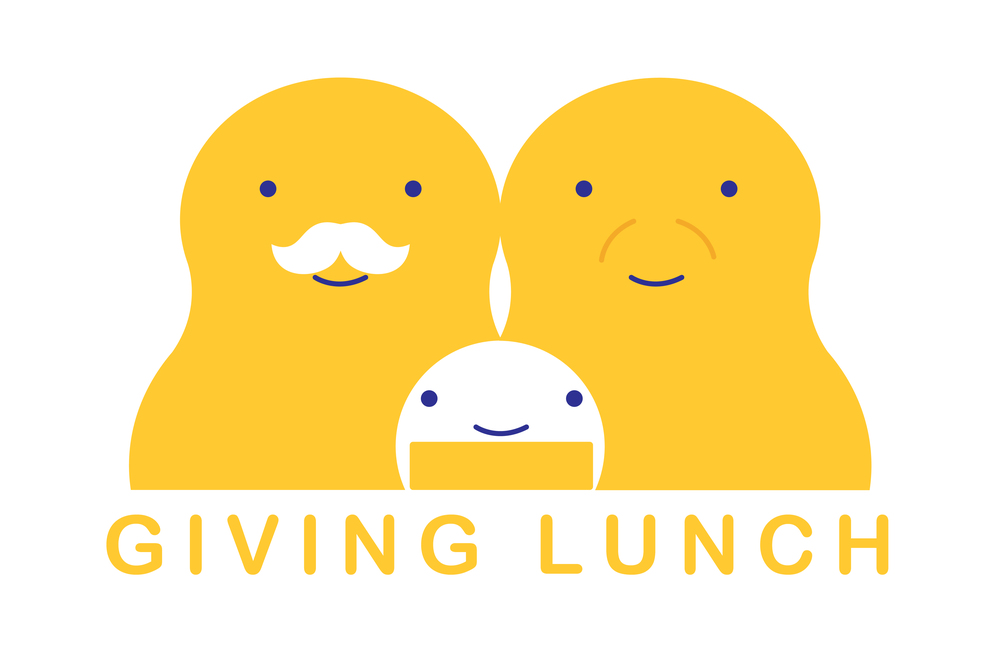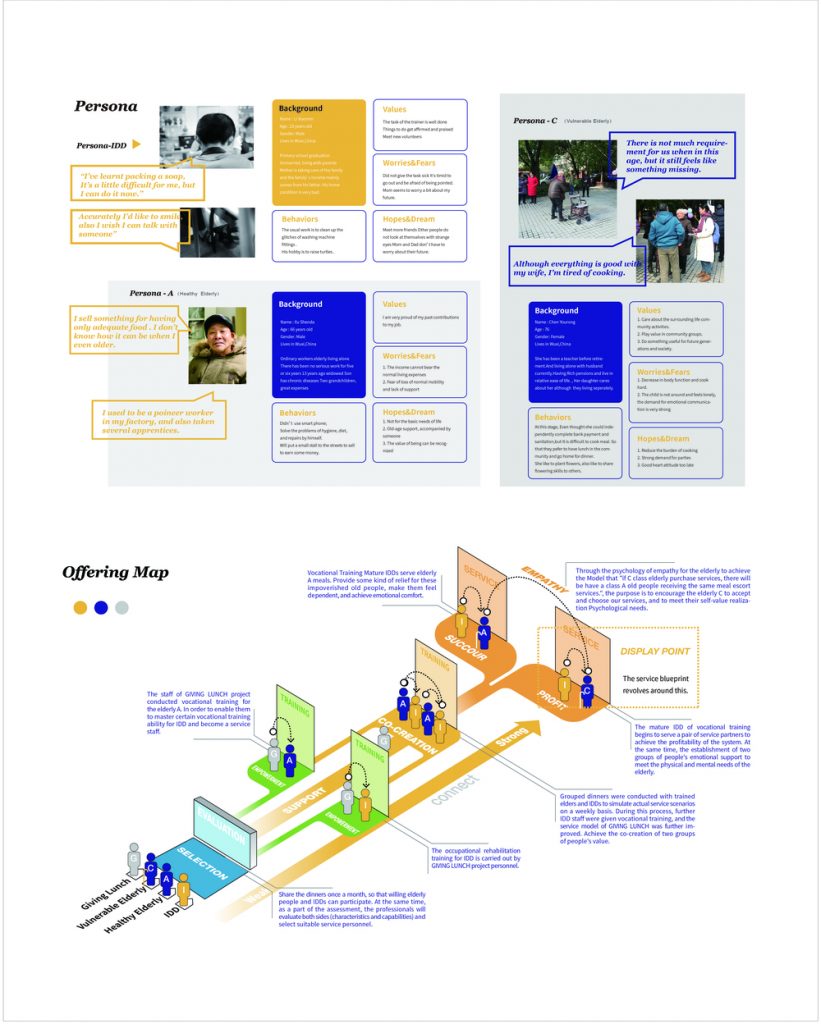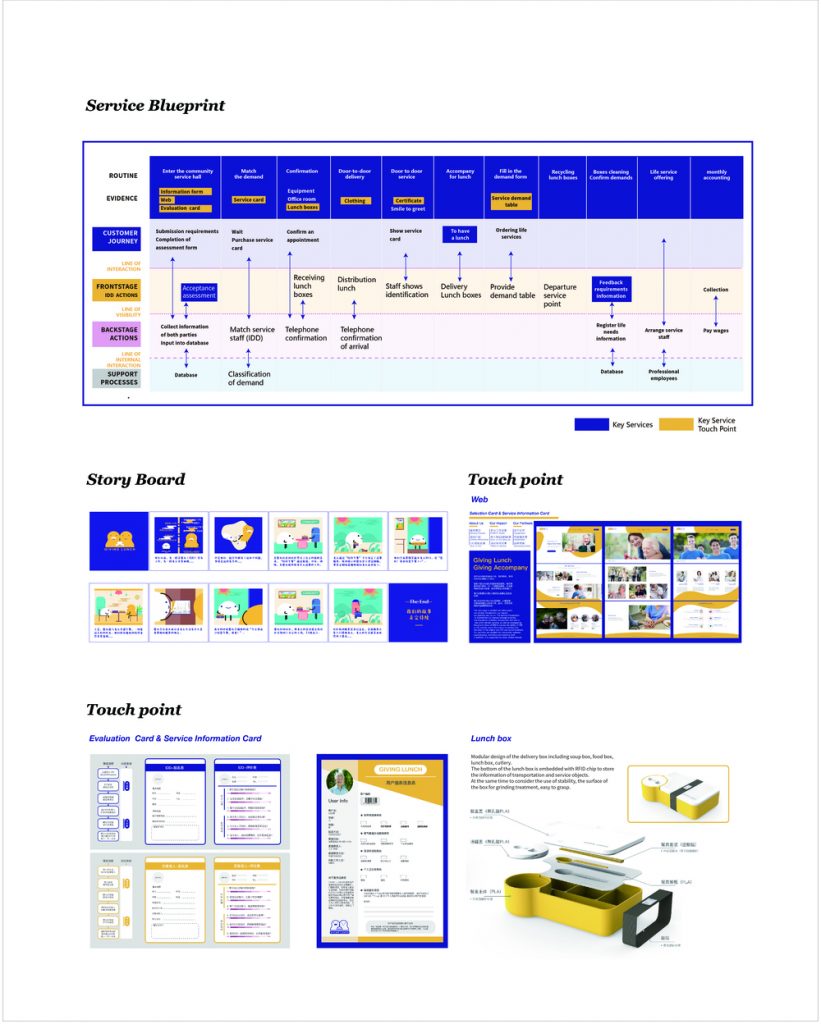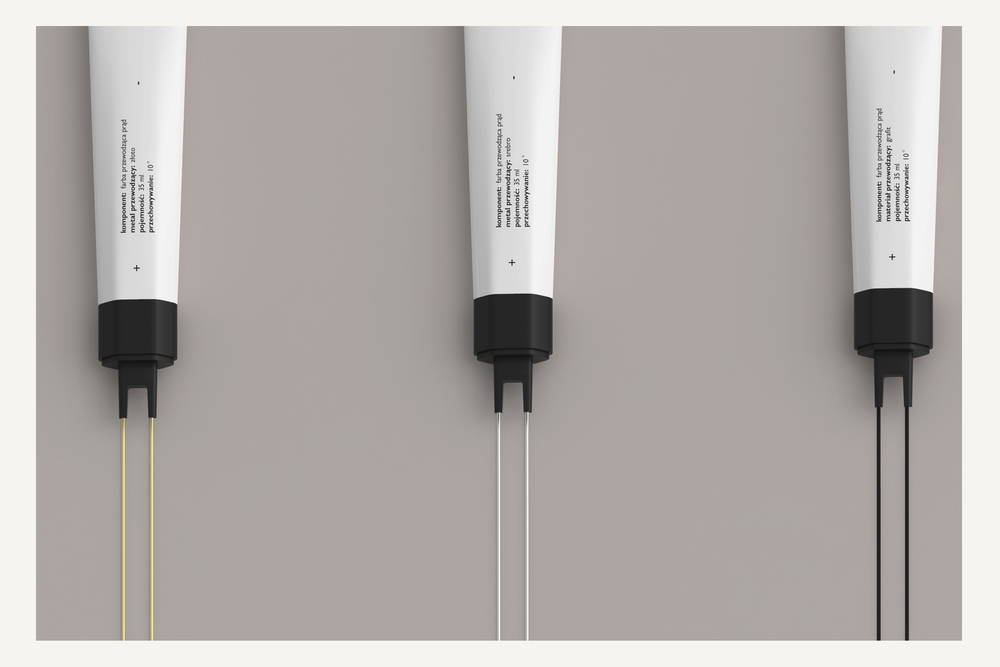Honorable Mention
Giving Lunch
Providing lunch companion service and food delivery service for the elderly by enabling disabilities
Solution
The service aims to bridge both groups for mutual benefits. On the one hand, to reduce empty nesters’ level of loneliness, we empower IDDs to provide lunch delivery and companionship service for those in the community. On the other hand, we empower people both young and old in the same community to help providing supportive employment for IDDs. Engagement would be guided and all kinds of resource would be integrated, thus empowering both groups to better realize their unique values.
Overview of the Solution
For people with intellectual and developmental disability (IDD), being employed is crucial for their social integration and self-realizing. Meanwhile, there is a growing shortage of personal caretaker for elderly people, especially empty nesters in China. Through desktop research, SET analysis, and questionnaire survey, our team discovered following problems that stand out: 1. For IDDS: • They have a hard time engaging in the society because of the misconception and prejudice against them. • Employment opportunity is rare and vocational rehabilitation service is lacking. 2. For empty nesters: • There is a shortage of trained caretakers and the cost of them is high. • Mistrust against caretakers is common. • Social support for spiritual comfort is limited The team aim to isolate some highly demanded personal needs for the elderly and empower IDD populations to fulfill these needs. Through our design and guidance, we hope that IDD populations would become service providers and establish a long-term companionship between empty-nesters. As a result, the team proposed the concept of GIVING LUNCH program, where people with IDD would deliver food to the elderly with limited mobility and provides LUNCH company. After preliminary prototype testing, the team sets three design goals for the service. 1. two way empowerment 2. trust building 3. service sustainability The service is divided into three stages. In each stage, the team gives different role to relatively old people (65-75 years old, relatively healthy), that is, as the enabling objects in the early stage of service, as value co-created objects with IDD population in the middle stage, and as opportunities for IDD service objects in the later stage. This approach not only solves the problem of IDD vocational trainers shortage, but also enables the younger elderly to continue to play their social value, and can serve as a bridge to build trust between IDD people and society, and participate in the elderly (over 75 years old, mobility difficulties) to solve the problem of dining. In the service process, IDD people can give play to their subjective initiative and establish long-term social relations with the service objects. At the same time, the system also makes full use of local resources, unites vulnerable groups. To some extent, the way of service design and delivery is reconfigured to achieve social sustainability. Services can drive the silver-haired economy to achieve economic sustainability.
PROJECT TEAM
Binbin Zheng, Danmiao Fan, Yulin Sun, Chao Weng and Miaosen Gong
INSTITUTION
Jiangnan University, School of Design,
Department of Industrial Design, China
Category
Service
FACULTY/COURSE ADVISOR
Miaosen Gong
STAKEHOLDERS
KEYIHUI public welfare design laboratory(NGO)



